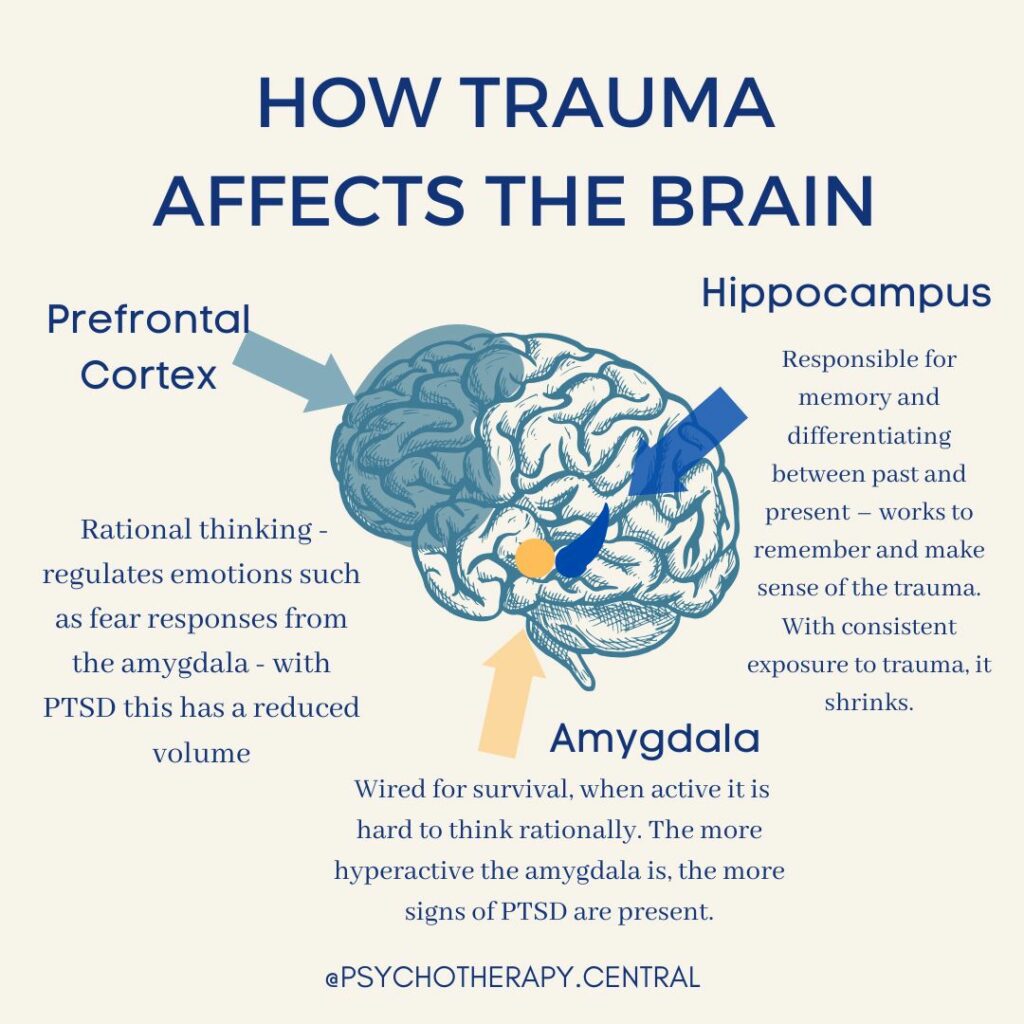Trauma affects the brain, especially the prefrontal cortex, amygdala and hippocampus. Ongoing trauma is associated with “lasting change in these brain areas” (Bremmer, 2006).
When there is a potential threat, the amygdala sends an instant message to the hippocampus, activating the autonomic nervous system (ANS). The ANS is the unconscious system that regulates bodily functions such as digestion, respiration and heart rate. If we need to run fast, this system will prepare us quickly.
The amygdala processes information faster than the prefrontal cortex, so our body may have responded before we could think logically about it.
The amygdala also releases cortisol and adrenaline, hormones that prepare us for fight-or-flight. Once the threat is gone, the body returns to normal. However, if there is a problem with this system, there will still be arousal, and the person will feel their heart rate elevation, increased breathing, and general unrest as a result of the activation of the fight-or-flight system.
𝐈𝐧 𝐏𝐓𝐒𝐃 𝐢𝐭 𝐢𝐬 𝐯𝐞𝐫𝐲 𝐝𝐢𝐟𝐟𝐢𝐜𝐮𝐥𝐭 𝐭𝐨 𝐚𝐜𝐭𝐢𝐯𝐚𝐭𝐞 𝐭𝐡𝐞 𝐩𝐫𝐞𝐟𝐫𝐨𝐧𝐭𝐚𝐥 𝐜𝐨𝐫𝐭𝐞𝐱 𝐭𝐨 𝐡𝐞𝐥𝐩 𝐜𝐚𝐥𝐦 𝐭𝐡𝐞 𝐰𝐡𝐨𝐥𝐞 𝐬𝐲𝐬𝐭𝐞𝐦 𝐝𝐨𝐰𝐧 𝐰𝐢𝐭𝐡 𝐥𝐨𝐠𝐢𝐜𝐚𝐥 𝐚𝐧𝐝 𝐬𝐨𝐨𝐭𝐡𝐢𝐧𝐠 𝐭𝐡𝐨𝐮𝐠𝐡𝐭𝐬 𝐚𝐧𝐝 𝐟𝐞𝐞𝐥𝐢𝐧𝐠𝐬.
Any healing of trauma will need to include engaging the prefrontal cortex and the whole body. Research has shown yoga, meditation, music, art, dance, EMDR, narrative work, and others can have a significant impact when working with trauma.
My experience has shown me the power of working with the inner child (transactional analysis and Internal Family Systems) and Focusing (a body-centred approach to therapy).
Let me know if you have any questions, Love Jen

